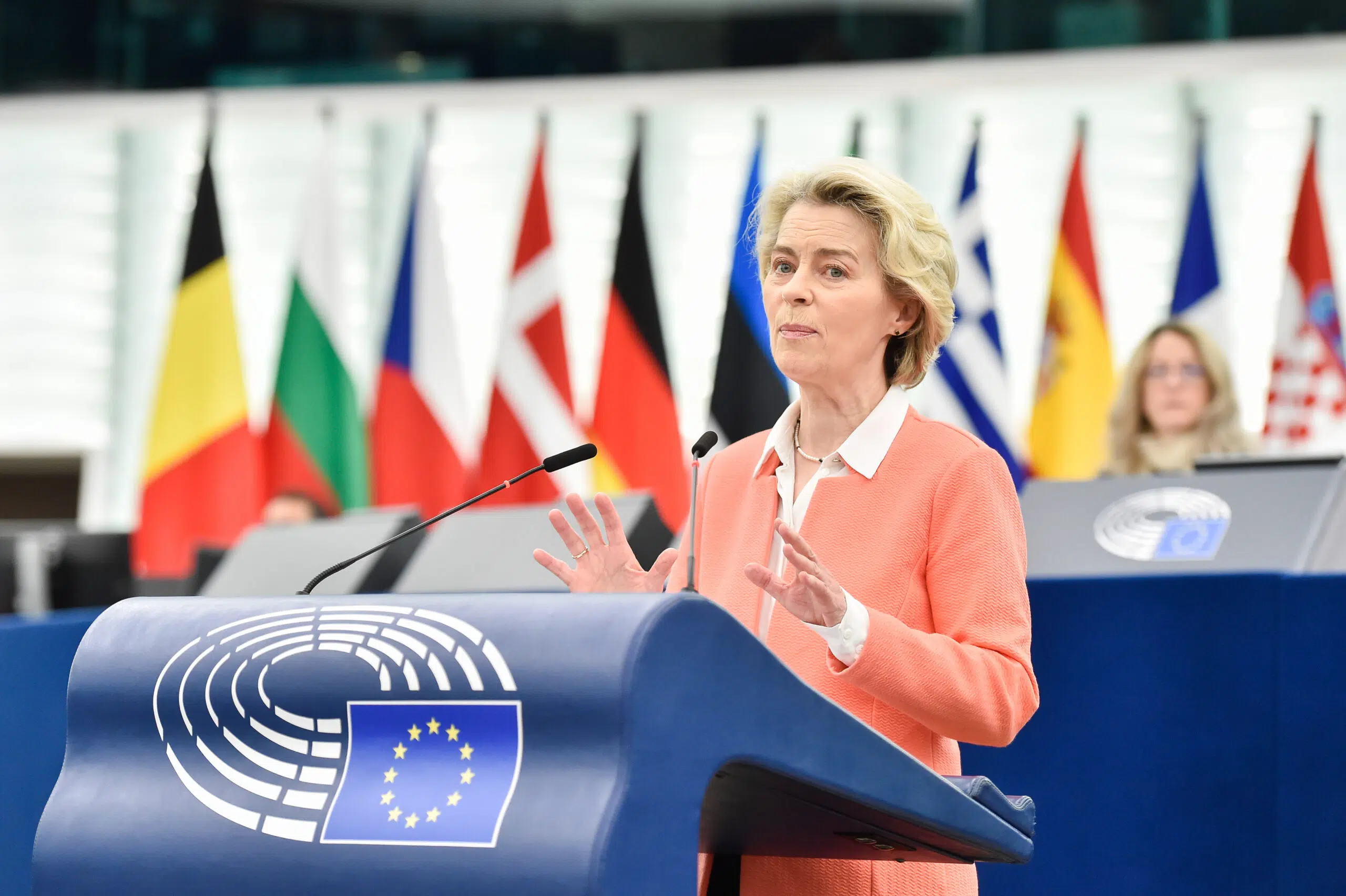Brussels – Early this morning (March 12), the Open Arms NGO ship that will be the first to deliver humanitarian aid to Gaza on the Cypriot Sea corridor set sail. With a two-day delay but at the same time as speech of Ursula von der Leyen at the European Parliament plenary in Strasbourg.
“As we speak, a ship is setting sail from Cyprus to Northern Gaza. Basic humanitarian aid, food for a population facing a humanitarian catastrophe,” the President of the European Commission announced to MEPs as she opened the debate in preparation for the upcoming European Council. It is a cargo of 200 tons of flour, rice, and canned food. A “very complex mission that we trust will be the first of many,” writes in
a post on X, the Spanish NGO transporting the cargo.
The opening of the sea corridor to Gaza comes to von der Leyen’s rescue so she can demonstrate the European Commission’s commitment in the face of a European Parliament that criticizes her increasingly harshly for her very soft stance toward Tel Aviv. And indeed, the EU leader focuses on the humanitarian catastrophe in Gaza without ever mentioning Israel. First, she notes how it is “the first ship authorized to deliver humanitarian aid to the Strip since 2005,” when “the situation on the ground is more dramatic than ever and has reached a tipping point.”
Along with the United States, the United Arab Emirates, the United Kingdom, and Cyprus, the European Commission will “decisively help increase the amount of aid that actually reaches people.” Von der Leyen explained that the Emirates and other partners will co-finance the shipments, Cyprus will manage departures from the port of Larnaca, and “we in the EU will intensify our logistical support on the ground.” In this sense, an EU coordination team “is already in Cyprus and will finance and coordinate the flow of European goods through this corridor,” she announced. Pending Washington’s establishment of the floating port, the sea corridor will be plied by “smaller ships.”

The European Commission President also announced the activation of the Civil Defense Mechanism of the EU to “strengthen support” for aid distribution initiatives from the ground and the air. “I call on all member states to contribute with means, from parachutes to containers,” von der Leyen appealed.
In the face of reports and news of “starving children,” the EU’s efforts must all go in the direction of ensuring that as much humanitarian assistance as possible gets into the Strip. “Everyone knows how difficult it is to get aid into Gaza,” von der Leyen stressed, however, never even hinting at the fact that the obstacles to the entry of convoys by land and the distribution of goods to the population are very often caused by the Israeli army, which does not open all available gates, which blocks aid for endless checks, and which, above all, does not guarantee its safe distribution.
“Right now, there is only one way to restore an adequate flow of humanitarian aid. The people of Gaza need an immediate humanitarian pause that would lead to a sustainable ceasefire. And they need it now,” von der Leyen concluded. A formula that, despite the clear evolution since the beginning of the conflict, is still far from the call for an “immediate ceasefire” that has long been raised by a large majority of the international community, and of EU countries, but not yet by their executive.
English version by the Translation Service of Withub









